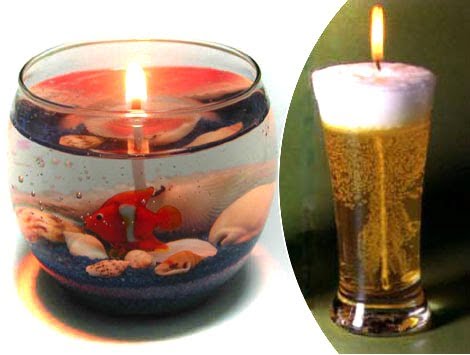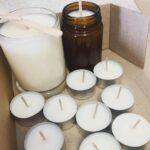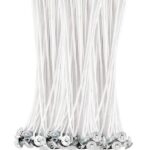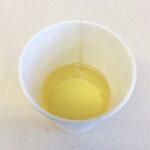Beeswax candles have long been admired for their natural beauty and unique properties. The warm, honey-like glow they emit creates a soothing ambiance that enhances any space. But beeswax candles offer more than just aesthetic appeal; they are also known for their clean, long-lasting burn and health benefits.
As the DIY trend continues to gain momentum, many people are discovering the joy of making their own beeswax candles. In this article, we will explore where to find high-quality beeswax for candle making and unleash your creativity in crafting these beautiful and eco-friendly creations.
Beeswax is a natural substance produced by honeybees through a complex process that involves transforming nectar into wax within the hive. Unlike paraffin candles, which often contain harmful chemicals and release toxins when burned, beeswax candles are non-toxic, hypoallergenic, and emit little to no soot or smoke. This makes them an excellent choice for those with sensitivities or allergies, as well as anyone concerned about indoor air quality.
With the growing popularity of DIY projects, candle making has become a favorite hobby for many. There’s something deeply satisfying about creating your own handmade candles using pure beeswax. Not only can you control every aspect of the process – from choosing your fragrance to customizing the shape and design – but you can also take pride in knowing that you’re using a sustainable and eco-friendly material.
Now that we’ve explored the beauty and benefits of beeswax candles, let’s dive into where you can find this precious ingredient to start your candle-making journey. Whether you prefer local sourcing or the convenience of online shopping, there are plenty of options available that cater to different preferences and needs. So let’s begin our exploration of where to find beeswax for making candles.
Beeswax Explained
Beeswax is known for its unique properties and benefits, making it a popular choice for candle-making enthusiasts. Before delving into where to find beeswax, it is important to understand the production process and how this natural substance is obtained.
The production of beeswax begins within beehives, where worker bees consume honey and produce wax scales from their abdominal glands. These wax scales are then chewed and manipulated by the bees until they form a cohesive substance that can be used to build honeycombs for storing food, raising young bees, and even creating chambers for the queen bee.
Once these honeycombs have served their purpose and are no longer needed within the hive, beekeepers collect them and begin the process of refining the beeswax for use in various applications, including candle making.
To refine raw beeswax, beekeepers typically heat it gently in water or steam to separate impurities such as propolis and bee debris. This process results in pure golden or yellow beeswax that is ready to be used in candle making. The refined beeswax can then be further processed into different forms such as blocks or pellets, depending on the preference of the consumer.
Understanding the production process of beeswax not only provides insight into how this natural substance is obtained but also emphasizes its connection to the intricate workings of a beehive. As consumers of candles made from beeswax, it allows us to appreciate the labor and craftsmanship that goes into each candle while enjoying its many benefits.
Traditional Sources of Beeswax
When it comes to sourcing beeswax for making candles, one traditional and reliable option is to reach out to local beekeepers and visit farmers’ markets. These direct sources not only provide access to fresh and raw beeswax but also offer a range of additional benefits.
Local beekeepers are passionate about their craft and often sell raw beeswax directly to consumers. This allows you to support local businesses while obtaining high-quality beeswax for your candle-making endeavors. By purchasing from beekeepers, you can establish a personal connection with the people behind the wax, gaining insight into their practices and processes. Additionally, buying from local beekeepers promotes sustainability by reducing carbon emissions associated with long-distance transportation.
Farmers’ markets also serve as excellent platforms to connect with beekeepers who specialize in producing beeswax. These markets typically feature a variety of products made by local artisans, including honey, wax, candles, and other bee-related items. By visiting farmers’ markets, you not only have the opportunity to purchase beeswax but also engage in conversations with knowledgeable vendors who can provide valuable advice on candle-making techniques.
| Benefits | Traditional Sources: Local Beekeepers and Farmers’ Markets |
|---|---|
| Access to fresh and raw beeswax | ✓ |
| Supporting local businesses | ✓ |
| Promoting sustainability | ✓ |
| Personal connection with beekeepers | ✓ |
| Opportunity for advice and guidance from knowledgeable vendors | ✓ |
Remember to check local directories, social media platforms, or community bulletin boards for information on local beekeepers and farmers’ markets in your area. Making the effort to support these traditional sources not only ensures a sustainable supply of beeswax but also enriches your candle-making journey by fostering connections within your community.
National and Global Online Retailers
When it comes to finding beeswax for making candles, one of the most convenient options is to explore national and global online retailers. These platforms offer the widest selection of pure beeswax products, allowing you to find exactly what you need with just a few clicks. Here are some popular online retailers that can provide you with a range of options for your candle-making endeavors:
- Amazon: As the largest online marketplace in the world, Amazon offers an extensive range of beeswax products from various sellers. Whether you’re looking for raw beeswax blocks, beeswax sheets for rolling your own candles, or pre-made beeswax candles, you can find them all on Amazon. With user reviews and ratings, it’s easy to assess the quality and reliability of different sellers before making a purchase.
- Etsy: Known for its handcrafted and unique items, Etsy is another great platform to explore when searching for beeswax for candle making. Many independent artisans and small businesses sell their handmade beeswax products on Etsy. This means you can support local or international makers while also finding high-quality beeswax options to fuel your creativity.
- Beekeeping Supply Websites: There are also dedicated websites that specifically cater to beekeepers and those interested in beekeeping supplies. These websites often offer a wide range of beeswax products, including blocks, pellets, sheets, and more. They may even have specialty items like colored or scented beeswax if you’re looking to add an extra touch of uniqueness to your candles.
Purchasing beeswax online has several advantages beyond convenience and selection. Firstly, it provides an opportunity to compare prices across different sellers and choose the best deal that suits your budget. Additionally, many online retailers provide detailed product descriptions that can educate you about the quality and origin of the beeswax.
With national and global online retailers at your fingertips, finding high-quality beeswax for making candles has never been easier. Whether you’re a beginner or an experienced candle maker, exploring these platforms can open up a world of possibilities for your creative projects. So, go ahead and browse through the wide selection available online to find the perfect beeswax for your candle-making journey.
Natural and Organic Stores
For those who prioritize using environmentally-friendly products, natural and organic stores are an excellent source for obtaining beeswax for candle making. These stores specialize in offering a wide range of eco-conscious products, including sustainably-sourced beeswax.
Availability and Variety
Natural and organic stores understand the demand for sustainable materials, so they often carry a variety of beeswax options. Whether you prefer raw beeswax or processed pellets, these stores typically offer different forms to cater to various candle-making needs. Additionally, you may find blends of beeswax with other natural waxes or essential oils, allowing you to customize your candles further.
Sourcing Sustainably
One of the significant advantages of purchasing beeswax from natural and organic stores is the knowledge that the product is sourced sustainably. These stores prioritize working with suppliers that adhere to strict environmental standards and ethical practices. By choosing beeswax from these establishments, you can contribute to the preservation of bee populations and support responsible beekeeping practices.
Supporting Local Businesses
Many natural and organic stores make an effort to source their beeswax locally. Supporting these stores means supporting local beekeepers and contributing to the community’s economy. You can feel confident in knowing that your purchase directly benefits those who work hard to provide sustainable beekeeping practices.
Craft and Hobby Stores
Craft and hobby stores are a treasure trove for creative enthusiasts looking for beeswax supplies to make their own candles. These stores cater specifically to DIY candle makers, providing a wide range of options when it comes to beeswax. Whether you prefer working with beeswax pellets, blocks, sheets, or even pre-made molds, craft and hobby stores are likely to have everything you need to start your candle making journey.
One advantage of shopping at craft and hobby stores is the variety of beeswax forms available. Beeswax pellets are popular among candle makers because they are easy to measure and melt, making them convenient for small-scale projects. Beeswax blocks, on the other hand, offer versatility as they can be easily shaved or cut into desired shapes.
Beeswax sheets come in different colors and textures, allowing for more creativity in design. Pre-made molds provide an alternative option for those who want to create specific shapes or patterns without having to mold the wax themselves.
Craft and hobby stores also often carry additional supplies such as wicks, dyes, fragrances, and tools that are essential for candle making. This makes these stores a one-stop shop for all your candle making needs. Moreover, the staff at these stores are knowledgeable about the different products available and can provide guidance on choosing the right beeswax supplies based on your specific preferences.
If you’re unsure where to find craft and hobby stores in your area that offer beeswax supplies, online directories or search engines can help locate nearby options. Many stores also have websites where you can browse their selection before visiting in person or even make purchases online.
Overall, craft and hobby stores are a fantastic resource for creative individuals interested in making their own candles using beeswax. With a wide range of options available and helpful staff to guide you through the process, these stores provide everything you need to embark on your candle making journey.
| Advantages of Craft and Hobby Stores for Beeswax Supplies |
|---|
| Wide range of beeswax forms available (pellets, blocks, sheets, molds) |
| Addition of other necessary supplies such as wicks, dyes, fragrances, and tools |
| Knowledgeable staff able to provide guidance and recommendations |
Local Apiaries
One of the most rewarding and immersive ways to find beeswax for making candles is by connecting with local apiaries. Local apiaries, or bee farms, are establishments where beekeepers raise and cultivate bees for honey production, among other purposes. Not only do these apiaries provide a direct source of beeswax, but they also offer a unique opportunity to learn about the fascinating world of bees and beekeeping.
Benefits of Local Apiaries
Visiting a local apiary allows candle makers to establish a connection with their community’s beekeepers. This personal interaction provides an avenue for asking questions, learning from experienced beekeepers, and gaining insights into the process of beeswax production. Additionally, supporting local bee farmers helps sustain the crucial role that bees play in pollinating our ecosystem.
Being at an apiary also gives candle enthusiasts the chance to witness the intricate behavior of honeybees firsthand. From observing the busy activities in the hive to witnessing a vibrant swarm taking flight, the experience can be both educational and awe-inspiring. Some local apiaries even offer guided tours or workshops where visitors can learn more about sustainable beekeeping practices and gain hands-on experience.
How to Find Local Apiaries
Finding local apiaries can be as simple as searching online directories specifically designed for locating nearby farms or contacting local agriculture organizations for recommendations. Additionally, reaching out to regional farmers’ markets, gardening clubs, or cooperative extension offices may lead to valuable connections with local beekeepers. Word-of-mouth recommendations from friends or neighbors who are involved in apiary-related activities can also be helpful.
When visiting an apiary, it is important to be respectful of the bees’ natural habitat and follow any guidelines provided by the beekeeper. Remember that bee stings are possible when handling or working near hives, so proper protective clothing should be worn. Most beekeepers are passionate about their craft and happy to share their knowledge, so don’t hesitate to ask questions and interact with these fascinating insects.
By sourcing beeswax directly from local apiaries, candle makers not only have a sustainable and authentic ingredient for their creations but also support the preservation of bee populations in their community. The experience of connecting with beekeepers and their bees adds an extra layer of meaning to the candle-making journey, fostering a deeper appreciation for the natural world.
Other Alternative Sources
While traditional sources like local beekeepers and online retailers are commonly known for procuring beeswax for candle making, there are also some surprising places where you can find this versatile ingredient. Exploring these alternative sources can not only provide unique experiences but may also lead to discovering beeswax of different qualities, textures, or even historical significance.
1. Antique Stores and Flea Markets:
Believe it or not, antique stores and flea markets can be treasure troves for finding beeswax. Often, you can stumble upon vintage candles or even old wax artifacts that have been forgotten over time. These unique finds not only add a touch of nostalgia to your candle-making experience but may also introduce you to variations of beeswax in terms of scent or color. Be sure to inspect the quality and authenticity of the wax before purchasing.
2. Beekeeping Associations and Clubs:
Beekeeping associations and clubs are communities dedicated to the art and science of beekeeping. They often organize events such as conferences, workshops, or honey festivals where beekeepers gather to share their knowledge and showcase their products. Attending these events provides an excellent opportunity to connect directly with beekeepers who may have surplus beeswax available for sale. Additionally, engaging with fellow enthusiasts can enhance your understanding of beeswax production and its various forms.
3. Organic Farms or Sustainable Living Centers:
If you’re looking for ethically sourced beeswax, consider visiting organic farms or sustainable living centers in your area. These establishments often prioritize environmentally-friendly practices and may have their own beehives onsite. By purchasing beeswax from them, you support sustainable beekeeping methods while obtaining high-quality wax for your candles. Some farms even offer guided tours or workshops where you can witness the beeswax production process firsthand.
Exploring alternative sources not only adds excitement to your search for this valuable ingredient but also allows you to engage with different communities and perspectives surrounding beekeeping and candle making. Remember to do your research, verify the authenticity and quality of the beeswax, and be open to unexpected finds – who knows what surprises await on your beeswax candle-making journey.
Conclusion
In conclusion, making beeswax candles is a truly rewarding and enjoyable experience. The unique properties of beeswax, such as its long burn time and naturally sweet aroma, make it an excellent choice for candle making. Whether you are a seasoned candle maker or a beginner looking to try your hand at DIY crafts, there are plenty of sources where you can find high-quality beeswax.
Throughout this article, we have explored a range of sources for obtaining beeswax. Local beekeepers and farmers’ markets offer the advantage of supporting local businesses while getting fresh and raw beeswax. On the other hand, national and global online retailers provide convenience and a wide selection of pure beeswax options. For those who prioritize eco-conscious products, natural and organic stores are an excellent choice as they often source their beeswax sustainably.
Craft and hobby stores cater specifically to DIY enthusiasts and offer various forms of beeswax, such as pellets or blocks. If you’re feeling adventurous, visiting local apiaries can give you an immersive experience in beekeeping while providing access to fresh beeswax. Additionally, don’t discount the possibility of finding beeswax in unexpected places such as antique stores or flea markets.
In summary, no matter where you choose to obtain your beeswax from, embarking on your own beeswax candle-making journey is sure to bring joy and satisfaction. So why not gather your supplies from one of the many sources we have discussed in this article? Unleash your creativity, enjoy the process of making candles with natural materials, and revel in the warm glow that only homemade beeswax candles can provide. Happy crafting.
Frequently Asked Questions
What is the best beeswax for candle making?
The best beeswax for candle making is typically one that is of high-quality and has undergone minimal processing. When looking for beeswax, it is important to choose one that is pure and free from additives or adulterants.
Beeswax with a bright color and a pleasant aroma is generally preferred by many candle makers as it enhances the overall aesthetic appeal of the candles. Additionally, beeswax that has been sourced sustainably and harvested from healthy beehives is highly recommended, as it ensures the well-being of bees and supports eco-friendly practices.
How do you get beeswax for candles?
Beeswax can be obtained for candles through various methods. One common way to acquire beeswax is to purchase it directly from beekeepers or local apiaries. This allows you to support local beekeeping businesses while obtaining fresh, high-quality beeswax.
Another option is to harvest your own beeswax if you have access to beehives or are an beekeeper yourself. In this case, the process involves extracting honeycombs from the beehive, melting them to separate the wax from honey residue, and then purifying the raw wax through filtering and straining.
Can any beeswax be used for candles?
Not all types of beeswax are suitable for candle making purposes. While most commercially available beeswax can generally be used for candles, there are some factors to consider when selecting beeswax for this particular application.
It’s important to use pure beeswax without any additives or foreign substances that could affect the quality of burning or cause undesirable effects like excessive soot production or poor scent throw in candles. Additionally, choosing filtered or refined beeswax can help eliminate impurities that may interfere with the performance of candles.

Welcome to my candle making blog! In this blog, I will be sharing my tips and tricks for making candles. I will also be sharing some of my favorite recipes.





